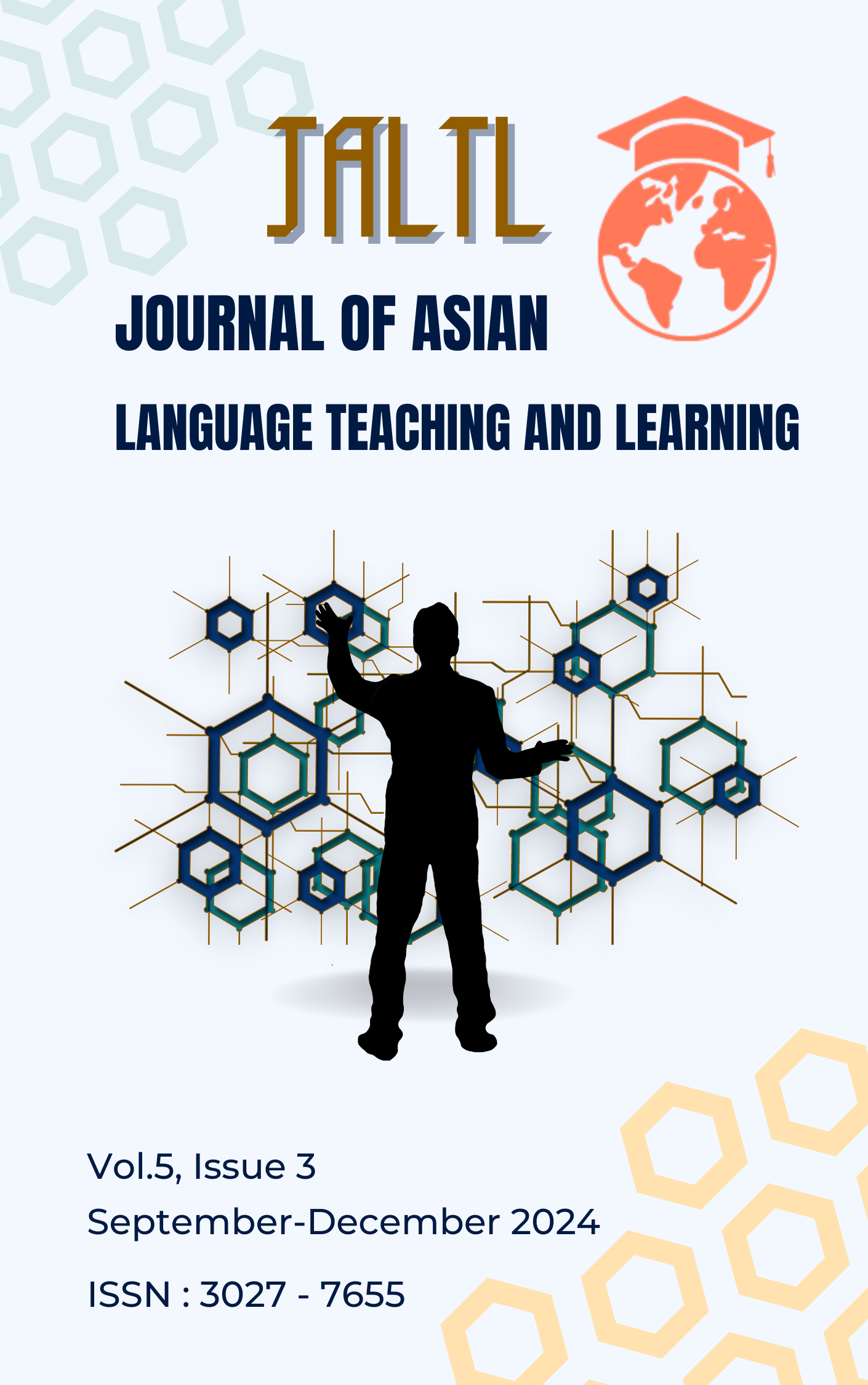Developing a Contextualized Digital Competency Framework for English Language Learners: A Needs Analysis in the Thai Context
Main Article Content
Abstract
This research studied the development of a contextualized digital competency framework for English language learners through analysis of international frameworks and needs assessment in the Thai context. The purposes of this research were: 1) to analyze key objectives, thematic elements, and focus areas within existing international digital competency frameworks (2015-2024), 2) to examine how learners' perceived needs and expectations for technology-based support compared to their experiences in using technology for English language learning, and 3) to identify essential components for a contextualized digital competency framework for English language learners. The research tools were: 1) systematic content analysis of international digital competency frameworks (n=30), 2) a needs assessment questionnaire (IOC=0.80, α=0.90) administered to language learners (n=1,904), 3) focus group interviews with learners (n=159) and stakeholders (n=54). The data were analyzed using 1) frequency analysis for framework components, 2) Modified Priority Needs Index (PNI modified) for needs assessment, 3) descriptive statistics for survey responses, and 4) thematic analysis for focus group data.
The results were found that: 1) content analysis revealed four key dimensions in existing frameworks: safe and responsible use (89.28%), cultural inclusivity with emphasis on equitable access (50%), pedagogical integration focused on motivation (92.85%), and lifelong learning support (46.42%); 2) needs assessment indicated significant gaps between desired and actual support levels (PNI modified=0.03-0.06), with highest needs in equitable access (M=4.26, SD=0.83) and career skill development (M=4.13, SD=0.89); 3) qualitative data from focus groups identified key challenges in motivation, resource accessibility, and self-directed learning, informing recommendations for a contextualized framework for language learners.
Article Details

This work is licensed under a Creative Commons Attribution-NonCommercial-NoDerivatives 4.0 International License.
References
Boonmoh, A., Jumpakate, T., Saengmanee, S., & Rungkaew, T. (2022). Integration of technology during the COVID-19 pandemic: Experience, challenges and needs of Thai EFL teachers. rEFLections, 29(2), 251–277. https://doi.org/10.61508/refl.v29i2.259346
Cambridge Assessment English. (2020). Learn 21st century skills in English. Cambridge Assessment English. https://www.cambridgeenglish.org/learning-english/parents-and-children/how-to-support-your-child/learn-21st-century-skills-in-english/
Chapelle, C. A., & Sauro, S. (Eds.). (2017). The handbook of technology and second language teaching and learning. Wiley Online Library.
Datareportal. (2023). Digital 2023: Thailand-Global digital insights. Retrieved from: https://datareportal.com/reports/digital-2023-thailand
Davis, N. (2018). Exponential technology trends that defined 2019. Singularity. Retrieved from: https://www.su.org/resources/exponential-technology-trends-that-will-define-2019
DQ Institute. (2019). Digital Kids Asia-Pacific. Retrieved from: https://www.dqinstitute.org
Farr, F., & Murray, L. (Eds.). (2016). The Routledge Handbook of Language Learning and Technology (1st ed.). London: Routledge. https://doi.org/10.4324/9781315657899
Healey, D., Hanson-Smith, E., Hubbard, P., Ioannou-Georgiou, S., Kessler, G., & Ware, P. (2011). TESOL technology standards: Description, implementation, integration. Teachers of English to Speakers of Other Languages, Inc.
Healey, D. (2016). Language learning and technology: Past, present and future. In F. Farr & L. Murray (Eds.), The Routledge handbook of language learning and technology (pp. 9-23). London: Routledge.
Hubbard, P., & Levy, M. (2016). Theory in computer-assisted language learning research and practice. In F. Farr & L. Murray (Eds.), The Routledge handbook of language learning and technology (pp. 24-38). London: Routledge.
Karanjakwut, C., & Sripicharn, P. (2024). Exploring the experiences, challenges, and perspectives in digital literacy training of older Thai EFL teachers with low digital literacy. Anatolian Journal of Education, 9(1), 81–96. https://doi.org/10.29333/aje.2024.916a
Kessler, G. (2016). Technology standards for language teacher preparation. In F. Farr & L. Murray (Eds.), The Routledge handbook of language learning and technology (pp. 57-70). London: Routledge.
Kessler, G., & Hubbard, P. (2017). Language teacher education and technology. In C. A. Chapelle & S. Sauro (Eds.), The handbook of technology and second language teaching and learning (pp. 278–292). Wiley-Blackwell.
Nation Thailand. (2023). Thailand ranks low in global digital skills index. Nation Thailand. Retrieved from: https://www.nationthailand.com/news/general/40043469
Office of Policy and Strategic Affairs, Electronic Transactions Development Agency (ETDA). (2020). Thailand internet user behavior 2019. Ministry of Digital Economy and Society. Retrieved from: https://www.etda.or.th/th/NEWS/ETDA-Revealed-Thailand-Internet-User-Behavior-2019.aspx
Saffa, A. (2024). Empowering Thai citizens: Digital literacy for all ages. OpenGov Asia. Retrieved from: https://opengovasia.com/2024/06/21/empowering-thai-citizens-digital-literacy-for-all-ages/
Shetye, S. (2024). An evaluation of Khanmigo, a generative AI tool, as a computer-assisted language learning app. Studies in Applied Linguistics and TESOL, 24(1), 38–53. https://doi.org/10.52214/salt.v24i1.12869
Soule, M. V., & Papadima-Sophocleous, S. (2019). Exploring the influence of teachers' education and professional development in Cypriot higher education CALL practices. In C. N. Giannikas, E. Kakoulli Constantinou, & S. Papadima-Sophocleous (Eds.), Professional development in CALL: A selection of papers (pp. 25–37). Research-publishing.net. Retrieved from: https://doi.org/10.14705/rpnet.2019.28.868
UNESCO. (2018a). UNESCO ICT competency framework for teachers (Version 3). United Nations Educational, Scientific and Cultural Organization. Retrieved from: https://unesdoc.unesco.org/ark:/48223/pf0000265721
UNESCO. (2018b). Integrating education for sustainable development (ESD) in teacher education in South-East Asia: A guide for teacher educators. United Nations Educational, Scientific and Cultural Organization. Retrieved from: https://unesdoc.unesco.org/ark:/48223/pf0000265760
UNESCO. (2019). Artificial intelligence in education: Challenges and opportunities for sustainable development. United Nations Educational, Scientific and Cultural Organization. Retrieved from: https://unesdoc.unesco.org/ark:/48223/pf0000366994
UNICEF. (2023). Educators’ Digital Competency Framework. UNICEF Europe and Central Asia Regional Office. Retrieved from: https://www.unicef.org/eca/reports/educators-digital-competence-framework
World Bank Group. (2024). Fostering foundational skills in Thailand: From a Skills Crisis to a Learning Society. World Bank Group. Retrieved from: https://www.worldbank.org/en/country/thailand/publication/fostering-foundational-skills-in-thailand
Yuan, C., Wang, L., & Eagle, J. (2019). Empowering English language learners through digital literacies: Research, complexities, and implications. Media and Communication, 7(2), 128–136. https://doi.org/10.17645/mac.v7i2.1912


